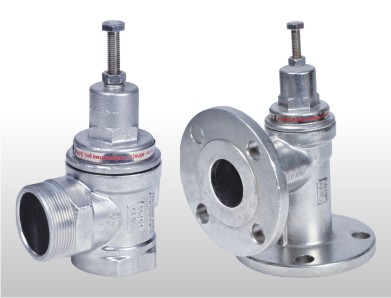Understanding the Critical Role of Safety Valves in Industrial Systems

In the realm of industrial systems, safety is paramount. As industries continue to advance and scale, the demand for reliable and effective safety mechanisms becomes ever more critical. Among these safety mechanisms, safety valves stand out as essential components in ensuring the protection and smooth operation of various industrial processes. This article delves into the fundamental role of safety valves, their importance in industrial systems, and the crucial aspects to consider when selecting a safety valve manufacturer.
What Are Safety Valves?
Safety valves are devices designed to automatically release excess pressure from a system to prevent overpressure conditions that could lead to catastrophic failures. These valves are vital in protecting equipment, piping, and personnel from the dangers associated with excessive pressure. They operate by opening to vent the excess pressure and then closing once the pressure returns to safe levels.
Why Safety Valves Are Essential
- Preventing Equipment Damage: Industrial systems often operate under high pressure and temperature conditions. Safety valves are crucial in preventing damage to equipment and piping by ensuring that pressure levels do not exceed safe operating limits. By releasing excess pressure, these valves help maintain the integrity of the system and prevent costly repairs or replacements.
- Ensuring Personnel Safety: High-pressure systems pose significant risks to personnel working in or around them. Safety valves act as a safeguard, reducing the risk of explosions, ruptures, and other dangerous incidents. By managing pressure levels effectively, safety valves help protect workers from potential harm and ensure a safer working environment.
- Regulatory Compliance: Many industries are subject to strict regulations regarding safety and pressure management. Compliance with these regulations often necessitates the use of safety valves. Adhering to safety standards not only ensures regulatory compliance but also demonstrates a commitment to maintaining high safety standards within the industrial operation.
- Maintaining System Efficiency: Efficient operation of industrial systems depends on maintaining optimal pressure levels. Safety valves help in achieving this by preventing pressure fluctuations that could lead to system inefficiencies. By managing excess pressure, these valves contribute to the overall performance and longevity of the system.
Choosing the Right Safety Valve Manufacturer
Selecting the right safety valve manufacturer is crucial to ensuring the reliability and performance of safety valves in industrial systems. Here are some key considerations to keep in mind when evaluating potential manufacturers:
- Quality and Reliability: The primary function of safety valves is to perform under critical conditions. Therefore, it is essential to choose a manufacturer known for producing high-quality and reliable safety valves. Look for manufacturers with a reputation for adherence to stringent quality standards and rigorous testing procedures.
- Industry Experience: A manufacturer with extensive experience in producing safety valves for specific industries will have a deeper understanding of the unique requirements and challenges associated with those industries. Experience can translate into better design, improved performance, and enhanced safety features in the valves.
- Customization Capabilities: Different industrial systems have varying requirements for safety valves. A reputable safety valve manufacturer should offer customization options to ensure that the valves meet the specific needs of the system. Customization can include adjusting valve sizes, pressure settings, and materials to match the operational conditions.
- Technical Support and Service: Post-purchase support is an important aspect of ensuring the long-term functionality of safety valves. Choose a manufacturer that provides excellent technical support and service, including installation guidance, maintenance, and troubleshooting assistance.
- Compliance with Standards: Safety valves must meet industry standards and regulations to ensure their effectiveness and safety. Verify that the manufacturer’s products comply with relevant standards and certifications, such as those from the American Society of Mechanical Engineers (ASME) or the International Organization for Standardization (ISO).
Conclusion
Safety valves are indispensable components in industrial systems, serving as the first line of defense against excessive pressure and potential system failures. Their role in preventing equipment damage, ensuring personnel safety, maintaining system efficiency, and meeting regulatory requirements underscores their importance in industrial operations.
When selecting a safety valve manufacturer, it is crucial to consider factors such as quality, reliability, industry experience, customization capabilities, and adherence to standards. By choosing a reputable manufacturer, industries can ensure that their safety valves perform effectively, providing crucial protection and contributing to the overall success of their operations. In the complex and high-stakes environment of industrial systems, understanding and investing in the right safety valves is essential for maintaining safety, efficiency, and compliance.
Also read Top Valve Manufacturers in UAE: Key Players and Industry Innovations





